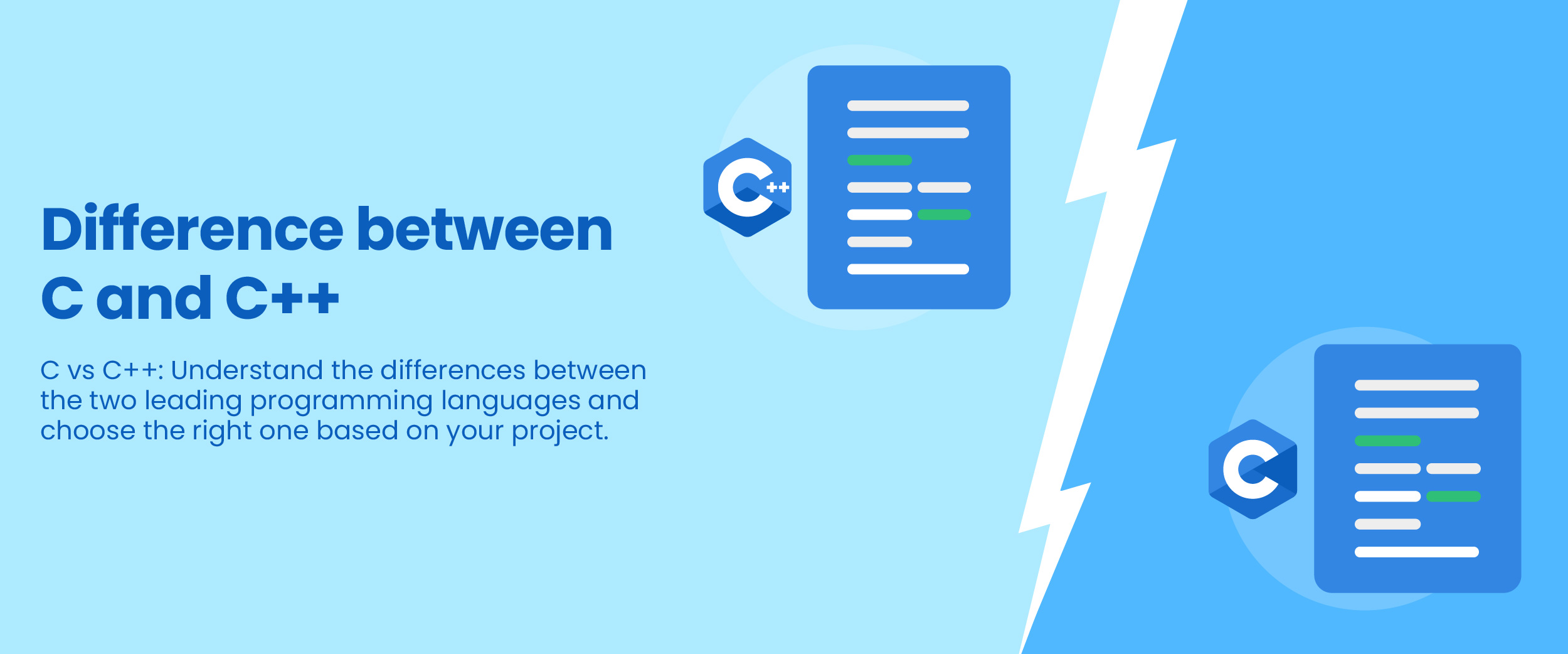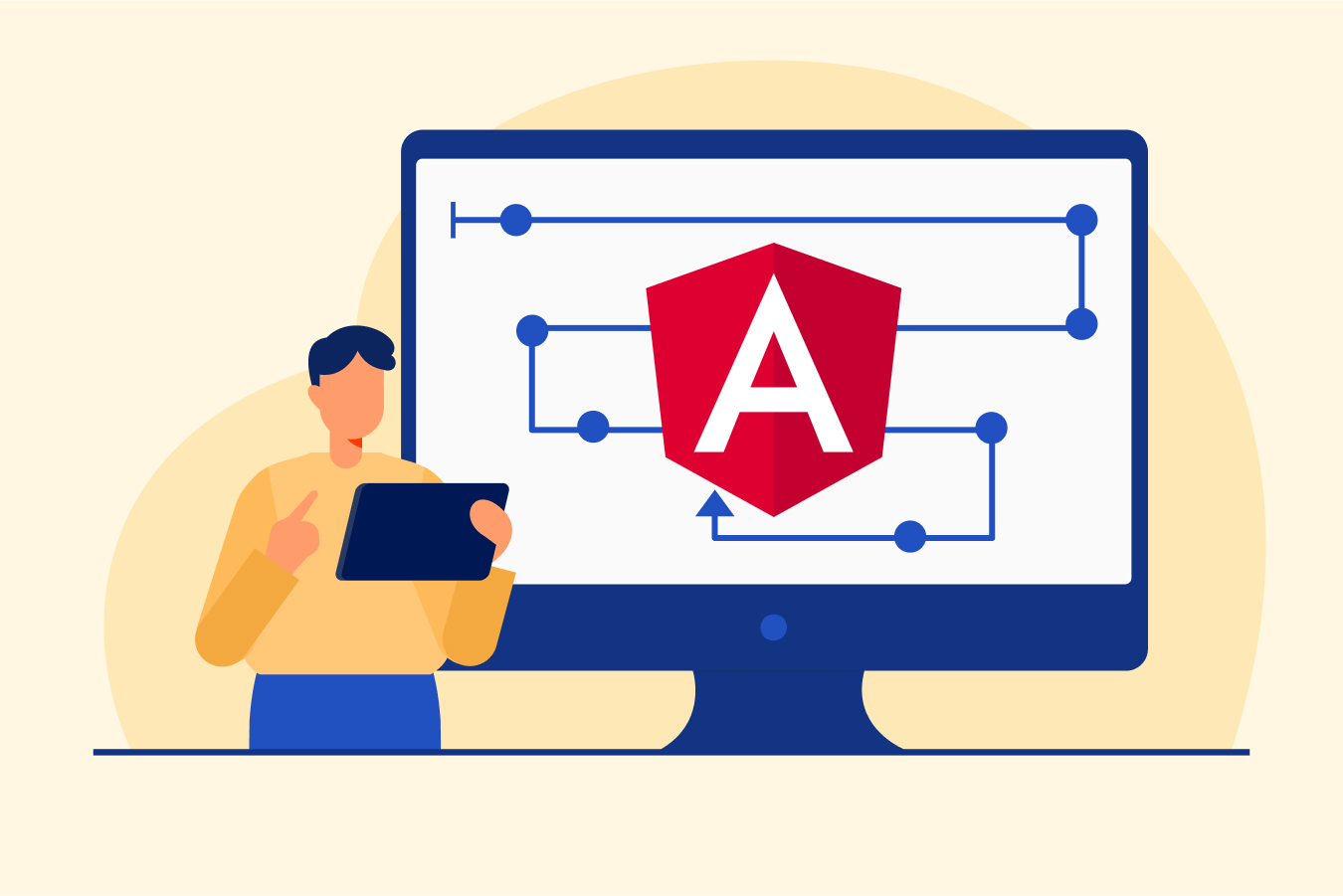Difference Between C and C++? – Which is Better?
JAVA and Python may have taken over the programming world, but C is still widely recognized as god’s programming language. C++ the extension of C also holds its popularity among developers.
The two popular programming languages, C and C++, have been around since the early 1970s. While there are many similarities between them, there are also many differences between C and C++. These differences render each of them appropriate for specific uses. For instance, C++’s object-oriented approach allows developers to write less buggy and more efficient code than they would be able to in C—which is a procedural language lacking in these features. However, most modern programming languages, including Python, were built on C making it a very relevant language.
In this blog, we will explore the differences between the two languages to help you understand which language is more suitable for you.
Before moving on to the main differences between C and C++’ let’s get an overview of C and C++.
What is C?
C is a general-purpose, procedural programming language developed in the early 1970s. It was designed to be simple and easy to learn as well as efficient and powerful for computer programs. While C has been superseded by more modern languages like Java and Python, it still remains popular due to its versatility and capability of running on many different types of hardware platforms including embedded systems.
Some aspects that make C an important programming language are:
- Similar Syntax to Other Languages- The syntax of C is similar to that found in other programming languages such as Pascal or Fortran with the addition of some special features unique to this language. For example, C supports multiple data types allowing developers to declare variables based on their purpose; these may include integers (int), floating-point numbers (float), or characters (char).
- Declaring Variables- Variables must be declared before use but can also be initialized at any point throughout the code either explicitly when declaring them or implicitly through assignment statements later on.
- Speed and Efficiency- While there are many newer languages available today that have surpassed C’s capabilities in terms of speed and efficiency still remains one of the most popular choices for development purposes.
- Easy to Learn- Its simplicity and power combined with wide platform support make it ideal for both beginners who want an easy introduction to coding along with experienced developers seeking a reliable solution for complex projects.
What is C++?
C++ is a general-purpose, object-oriented programming language developed in the early 1980s. It was designed to be an improved version of C, adding new features and capabilities that would allow developers to create more efficient software programs with fewer lines of code.
Some factors that contributed to the popularity of C++ are:
- Ability to Group Data- Unlike its predecessor, C++ supports classes that provide programmers with the ability to group related data and functions together resulting in cleaner code that is easier to read and maintain.
- Allows Inheritance- It also allows for the inheritance which enables new objects or classes to acquire all the characteristics from their parent class as well as additional features added by themselves if desired, thus creating a hierarchical structure between them.
- Allows Templates- It also has support for various other features such as templates allowing multiple types of data within one function along with namespaces which provide separation between different sections of code making it easier when dealing with large projects involving many files or libraries.
- Smart Pointers- It includes memory management tools like smart pointers which help in reducing errors caused by improper handling of dynamic memory allocation while at the same time providing better performance compared to manual methods used previously in languages like C.
Overall, C++ is quite powerful when compared to most other popular languages today due to its vast library containing numerous modules ranging from system utilities to graphical user interfaces (GUI). Its efficiency combined with flexibility makes it suitable for beginners who want an easy introduction
To learn more about the difference between the two languages, you can pursue a full-fledged C and C++ programming course.
What is the Difference Between C and C++?
C and C++ might seem similar but are different in a lot of ways. Let’s have a look at the differences:
| Basis for Difference | C | C++ |
| Developer | Developed by Dennis Ritchie between 1969 and 1973 | Developed by Bjarne Stroustrup in 1979. |
| Definition | It is a structural programming language. | It is an object-oriented programming language. |
| File Extension | File extension for C is .c | File extension for C++ is .cpp |
| Header File | C uses <stdio.h> header file. | C++ uses <iostream.h> header file. |
| Subset | C is a subset of C++ | C++ is a superset for C. |
| Keywords | C has 32 keywords | C++ has 63 keywords |
| Data Type | C has support for built-in data types. | C++ supports both built-in and user-defined data types. |
| Inheritance | No support for inheritance. | Supports inheritance. |
| Approach | C follows a top-down approach | C++ follows a bottom-up approach |
| Function Overloading and Overriding | There is no support for function overloading and overriding | It supports both function overloading and overriding |
| Exception Handling | Direct support for exception handling is not provided. | Direct support is provided using a try-catch block. |
| Security | Data can easily be changed and removed by outsiders. | Data is secure as it supports encapsulation and hiding. |
| Used By | Oracle database, MySQL, Windows Kernel, etc. | Microsoft Office, Google Chrome, Torque 3D game engine, etc. |
Similarities between C and C++
Having thoroughly examined C and C++ differences, let’s take a look at their similarities. C and C++ have similar:
- Coding syntax
- Compilation
- Code structure
- Notation of stack, heap, and file scope variable
- Basic grammar, although C++ has extended grammar as compared to C
- Operators understand this in detail in the next section
Operators in C and C++
There are some operators used both in C and C++. They are mentioned below:
1. Arithmetic Operators
They are used to perform mathematical operations like addition, subtraction, multiplication, and division. In C and C++ the basic arithmetic operators are represented by symbols such as:
| Symbol | Operation |
| + | Addition |
| – | Subtraction |
| * | Multiplication |
| / | Division |
| ++ | Increments value by 1 |
| — | Decrements value by 1 |
2. Relational Operators
These operators are used to compare two values or expressions. Here is a list of relational operators:
| Symbol | Operation |
| == | Equal |
| != | Not equal |
| > | Greater than |
| < | Less than |
| <= | Less than or equal to |
| >= | Greater than or equal to |
These can be used in combination with logical operators such as && (and) or || (or). Once the comparison is made between two values the result will be either true or false depending on whether the statement is true or false respectively.
3. Logical Operators
They allow you to combine multiple conditions into one expression. They operate on Boolean values of true/false where an expression containing a logical operator returns a single Boolean value that is determined based on the individual outcomes of each condition combined within it. The most commonly used logical operator in C and C++ programming languages are:
| Symbol | Operation |
| && | And |
| || | Or |
| ! | Not |
Difference between && (AND) and || (OR)
‘&&’ operator in C and C++ works similar to how ‘And’ works in the English language. To simplify, if both conditions are met then the result will be true otherwise it will return false.
‘||’ operator considers if either of the conditions specified within an expression evaluates to true. If it does, then the outcome will also be seen as being true regardless of any other statements present therein.
- Bitwise Operators– They are used to make calculations faster in numerical computations. They do so by making operations at the bit level. They are represented through 0s and 1s just like computer memory does when storing information digitally rather than analogically as humans do naturally.
| Symbol | Operation |
| & | And |
| | | Or |
| ! | Not |
| ^ | Exclusive Or |
| ~ | Complement |
| << | Left shift |
| >> | Right shift |
Conclusion
In conclusion, there are both similarities and differences between C and C++ which make them suitable for different applications. Ultimately both languages are powerful tools in their own way. Thus, it is a good idea for developers to consider their project requirements before making their final decision.






